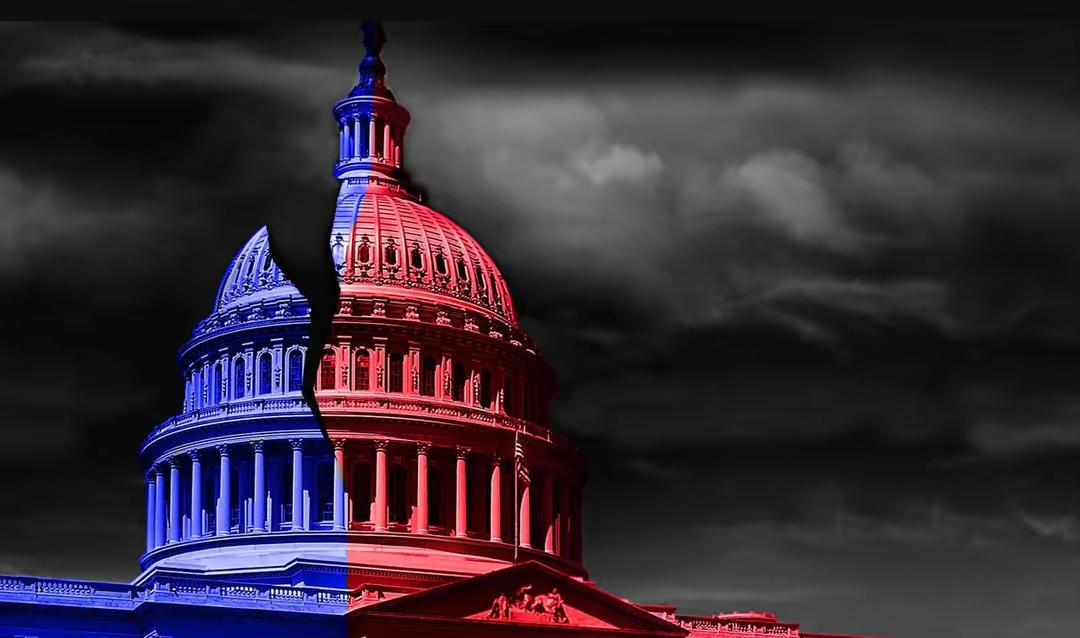
Recently, a tax and spending bill called "Big and Beautiful" on the US political stage has attracted global attention. From the difficult passage of the House of Representatives in May, to the Senate narrowly passing with a score of 51-50 on July 1, and then to the Senate version being passed again on July 3 and soon to be signed into law by Trump, every step of this bill has been accompanied by intense controversy, and its impact on the US economy has become a focus of attention from all walks of life.
From the content of the bill, it can be described as a 'bold and decisive' move. In terms of taxation, the plan is to reduce taxes by $4 trillion over the next 10 years, making the corporate and personal tax cuts implemented by Trump in 2017 permanent. It also introduces policies such as tax exemptions for overtime pay and tips, significantly increasing inheritance and gift tax exemptions, and linking them to the inflation index. In terms of expenditure cuts, nearly trillions of dollars in medical subsidies have been reduced, and eligibility thresholds have been raised; The eligibility for the Supplemental Nutrition Assistance Program has been tightened, and the age requirement for citizens to receive food assistance has been raised from 54 to 64 years old, with an estimated reduction of $230 billion over 10 years.
From a positive impact perspective, the first is at the enterprise level. Permanently reduce the corporate tax rate from 35% before the 2017 tax reduction to 21%, and extend or increase tax incentives for enterprises in new machinery, equipment, and research and development. This undoubtedly reduces the burden on enterprises, increases their disposable funds, and allows them to invest more resources in expanding production, technological innovation, and market expansion, thereby stimulating enterprise investment, driving employment growth, and having a certain driving effect on economic growth.
However, the negative impact of the "Big and Beautiful" bill should not be underestimated. From a fiscal perspective, the Congressional Budget Office of the United States analyzed that extending tax cuts alone would incur over $4.5 trillion in spending costs over the next decade. The Senate version of the bill over the next decade would increase the US deficit by nearly $3.3 trillion and raise the debt ceiling by $5 trillion. This will further deteriorate the financial situation of the United States, with a heavy government debt burden and the need to pay huge interest rates in the future, compressing the government's spending space in other key areas such as education, research, and infrastructure construction, and affecting the long-term development potential of the economy.
In terms of the social wealth gap, the bill has a clear feature of "robbing the poor to help the rich". According to the analysis of Yale University's budget laboratory, the annual after tax income of one fifth of Americans at the lowest income level will decline by an average of 2.3% in the next decade, while the annual after tax income of one fifth of Americans at the highest income level will increase by about 2.3%. The bill significantly reduces federal medical subsidies, resulting in nearly 12 million low-income individuals losing their health insurance in the next 10 years; Reduce food voucher programs to make the lives of the poor even worse. High income families benefit from an increase in the maximum amount of state and local tax deductions from $10000 to $40000, while families with an annual income of $200000 to $500000 and those who own property receive favorable tax benefits. The further widening of the wealth gap will trigger social instability factors, affect the balanced development of the consumer market, limit the consumption ability of low-income groups, and constrain the endogenous driving force of economic growth.
The clean energy industry has been hit hard. The CEO of the American Clean Power Association stated that the shock brought by the bill far exceeded expectations. According to Newsweek, the bill could jeopardize up to 4500 clean energy projects across the United States, threaten hundreds of thousands of jobs, and require American households to bear billions of dollars in additional energy expenses annually for the next five years. Since Trump began his second presidential term, more than 20 large-scale clean energy projects in the United States have been cancelled or reduced, affecting $21.6 billion in private investment. If the bill takes effect, it is expected to lose 840000 jobs closely related to renewable energy, clean technology manufacturing, and the electric vehicle industry chain by 2030. This not only leaves the United States behind in the global competition for clean energy, losing its leading advantage in this field, but also affects the development of related industrial chains, hinders the pace of industrial upgrading and transformation, and is not conducive to sustainable economic development.
The impact of the "Big and Beautiful" bill on the US economy is complex and multifaceted. In the short term, it may bring certain benefits to some industries and groups. However, from the perspective of long-term and overall healthy economic development, the negative effects it brings, such as fiscal risks, intensified wealth inequality, and suppression of emerging industries, will lay many hidden dangers for the US economy. The future direction is worthy of continuous attention and in-depth research.

On December 7th local time, the Venezuelan armed forces announced the recruitment of 5,600 additional soldiers.
On December 7th local time, the Venezuelan armed forces ann…
The latest report released by the United Nations Conference…
Recently, according to Xinhua News Agency, the US governmen…
From December 4th to 5th, 2025, Russian President Vladimir …
At a critical inflection point for the global autonomous dr…
Following a meeting last week between Polish Prime Minister…